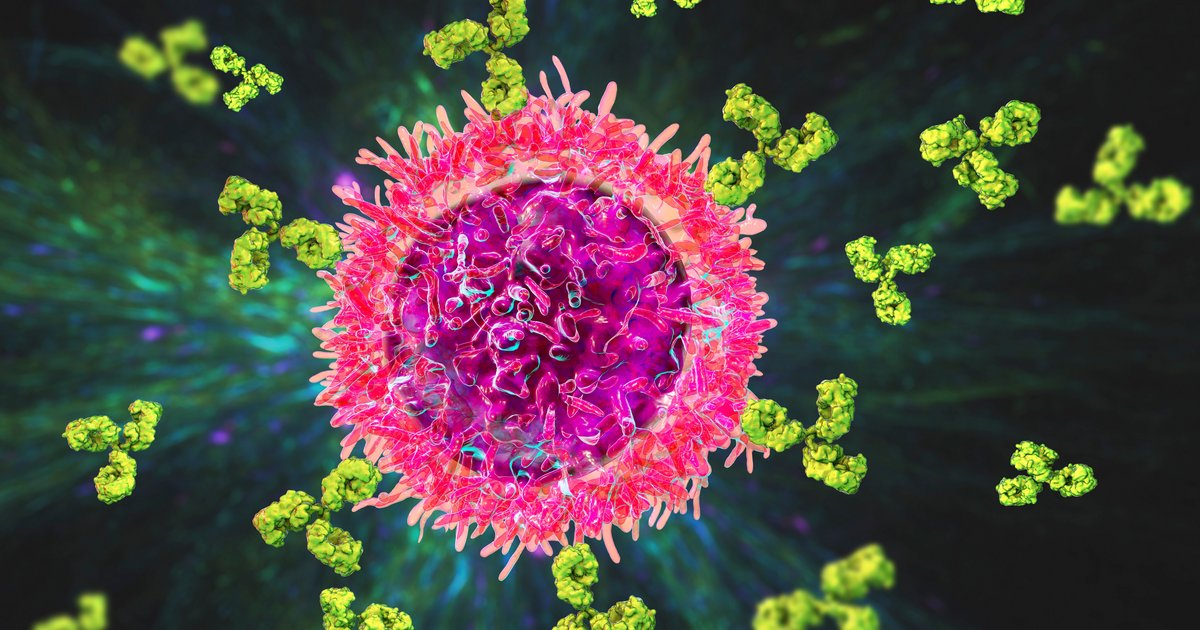(Vienna, May 10, 2023) Variable immunodeficiency syndrome (CVID) is the most common symptom of congenital immunodeficiency in humans. Sufferers suffer frequent infections of the upper and lower respiratory tract, and many develop granulomas, lymphomas, and in the worst cases, autoimmune diseases. An international team of researchers led by MedUni Vienna has deciphered why some CVID patients develop autoimmune diseases and others do not. The study results have been published in the specialized journal Cell Reports.
Because variable immunodeficiency syndrome is characterized by a lack of antibodies (IgG, IgA, and sometimes IgM), it is also called common variable immunodeficiency syndrome (CVID). In addition to being susceptible to infections, those affected also have a higher risk of developing autoimmune diseases. B lymphocytes (B cells) are the main players in this dysfunction of the immune system, in which the body’s own structures are attacked: self-activating B cells must be suppressed during B cell development in order to prevent autoimmunity.
“Although autoimmune diseases are common, we still know little about B-cell selection in these patients,” says study leader Ola Grimsholm of the Institute of Pathophysiology and Allergy Research at MedUni Vienna’s Center for Pathophysiology, Infectious Diseases and Immunology. “This is why we decided to investigate the mechanisms of central and peripheral B-cell selection in the CVID study.” For this purpose, only patients with infections were compared to those with autoimmune diseases. It can be shown that the load of central B cells in the bone marrow is intact, but the selection of peripheral B cells in the germinal center is defective. This was confirmed by the significantly reduced number of somatic mutations in the B-cell receptor and was particularly true of alternative mutations in patients with autoimmune diseases.
“The in vitro activation data can mechanistically support why the somatic hypermutation process may not function optimally in these patients. In short, our data can explain at least in part why some patients with CVID are susceptible to autoimmune disease,” says Ola Grimsholm. Before more in-depth studies on this topic.
Publication: Cell Reports
Dysfunction of peripheral B-cell selection in common variant immunodeficiency patients with autoimmune manifestations
Vanda Freeman, Isabella Quinte, Alexei N. Davidov, Mikhail Shogai, Chiara Varoni, Eric Engstrom, Shirin Pour-Akaber, Sabina Parisi, Ahmed Mohamed, Federica Pulferente, Cinzia Milito, Guido Granata, Ezio Giorda, Sara Ahlstrom, Juanelna Karlescu, Valentina Marcellini, Chiara Bucci, Simona Cascioli, Marco Scarcella, Ganesh Vad, Andreas Televec, Marco Tartaglia, Mats Bimark, Dmitry M. Chudakov, Rita Carcetti, Ola Grimsholm
DOI: https://doi.org/10.1016/j.celrep.2023.112446

“Alcohol buff. Troublemaker. Introvert. Student. Social media lover. Web ninja. Bacon fan. Reader.”







More Stories
Mission ‘Sunrise III’: Recovering Data Storage in Canada – Science
Ecologists Celebrate New Xesap National Park in Laos | Science
Is the wrong diet making you forget?